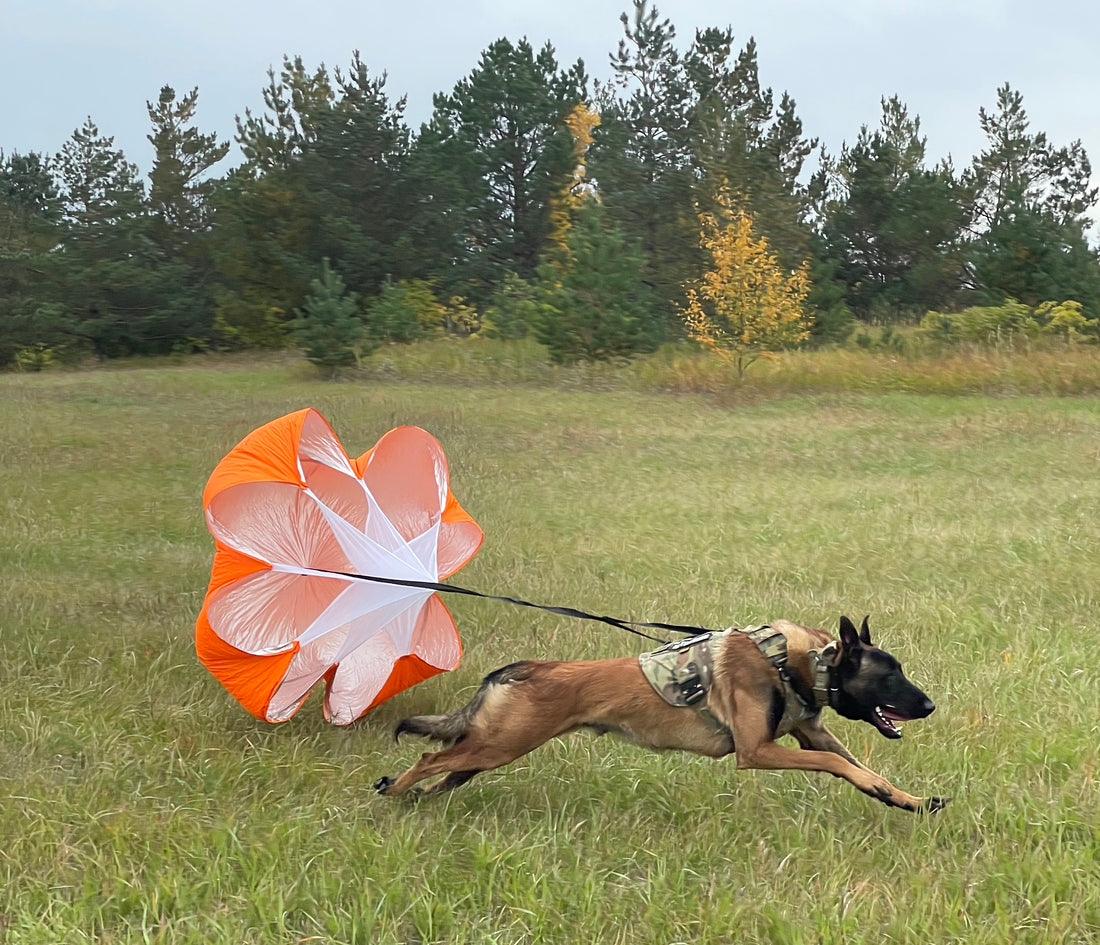
What is Canine Body Conditioning?
Share
Canine body conditioning refers to the process of improving a dog's physical fitness and overall health through exercise and training. This process is important for all dogs, regardless of their breed, age, or size. In this blog, we will discuss the importance of canine body conditioning and its benefits for dogs.
First and foremost, canine body conditioning is crucial for maintaining a dog's physical health. Just like humans, dogs need regular exercise to keep their muscles and bones strong, improve cardiovascular health, and maintain a healthy weight. A lack of exercise can lead to a host of health problems, including obesity, joint pain, and cardiovascular disease.
In addition to physical health, canine body conditioning can also benefit a dog's mental health. Regular exercise helps to reduce stress and anxiety, which can lead to a happier and more well-adjusted dog. This is especially important for dogs that may be prone to anxiety or other behavioral issues.
Canine body conditioning can also help to prevent injury in dogs. By strengthening the muscles and improving flexibility, dogs are less likely to suffer from muscle strains or joint injuries. This is particularly important for working dogs or dogs that engage in high-impact activities like agility or flyball.
Another benefit of canine body conditioning is improved agility and performance. Dogs that are physically fit and well-conditioned are better able to perform in athletic competitions and may be less prone to injury. This is especially important for dogs that participate in activities like agility or obedience training.
Canine body conditioning can also be an important tool for rehabilitation after an injury or surgery. By working with a veterinarian or canine physical therapist, dogs can gradually build up their strength and mobility after an injury or surgery. This can help to speed up the recovery process and reduce the risk of reinjury.
There are many different types of exercises and activities that can be used for canine body conditioning. Some popular options include walking, running, swimming, and agility training. It's important to choose activities that are appropriate for your dog's age, breed, and overall health. For example, high-impact activities like jumping and running may not be suitable for older dogs or dogs with joint problems.
When starting a canine body conditioning program, it's important to start slow and gradually build up your dog's endurance and strength. This will help to prevent injury and ensure that your dog enjoys the process. It's also important to keep your dog's individual needs and abilities in mind when choosing exercises and activities.
Overall, canine body conditioning is a vital component of a dog's overall health and well-being. By incorporating regular exercise and training into your dog's routine, you can help to improve their physical and mental health, prevent injury, and enhance their performance and agility. Whether you have a young, active dog or an older dog that may be prone to joint problems, there are many different types of exercises and activities that can be tailored to your dog's individual needs and abilities. So why not start a body conditioning program for your furry friend today and help them lead a happier, healthier life!
A canine body conditioning coach can provide a wealth of knowledge and expertise to help you design and implement an effective body conditioning program for your dog. Here are some of the ways that a canine body conditioning coach can help:
-
Designing a customized conditioning program: Based on your dog's individual needs and goals, a canine body conditioning coach can design a personalized conditioning program that includes a variety of exercises and activities to improve strength, flexibility, endurance, and overall fitness. The coach can also provide guidance on proper form and technique to prevent injury and maximize results.
-
Providing motivation and support: A canine body conditioning coach can provide motivation and support to help you and your dog stay on track with your conditioning program. This can include regular check-ins, progress assessments, and encouragement to help you and your dog stay motivated and engaged.
-
Modifying the program as needed: As your dog's physical condition improves, a canine body conditioning coach can adjust the conditioning program to ensure that it continues to challenge your dog and promote further improvement. The coach can also make modifications to the program as needed to address any injuries, health concerns, or changes in your dog's physical condition.
In summary, a canine body conditioning coach can provide the expertise and guidance needed to design and implement an effective conditioning program for your dog. With a customized program, support, and motivation, you and your dog can achieve improved physical fitness, mental health, and overall well-being.